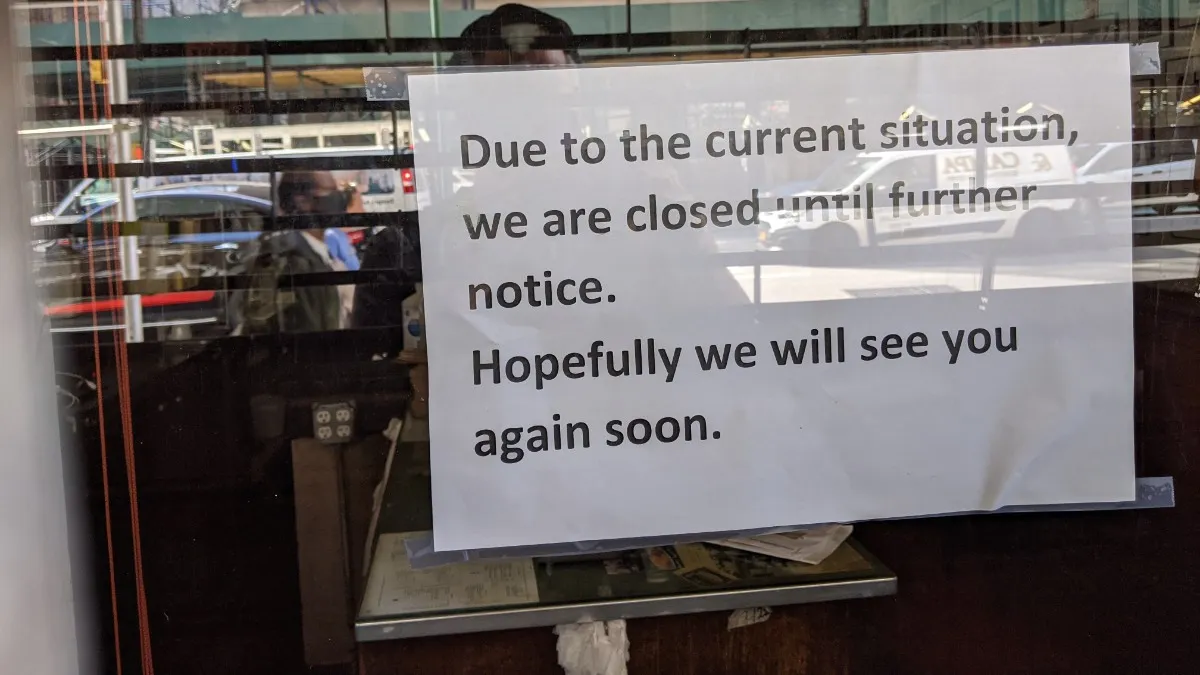Dive Brief:
- California restaurants are seeking to recover over $100 million in fees for liquor and health permits and tourism assessments that were collected even when the restaurants were forced to close their dining rooms under government mandates, according to the Associated Press.
- Claims have been filed against the state and Los Angeles, Orange, Sacramento, San Diego and Monterey counties with additional claims expected in San Francisco, Fresno and Placer counties to come. These filings could lead to a class-action lawsuit against government agencies, which have 45 days to respond to the initial claims.
- Under the state’s current rules, counties with high infection rates are limited to outdoor dining, takeout and delivery. As rates improve, counties can allow restaurants to open dining rooms at 25% capacity. The highest capacity a restaurant can operate is 50%.
Dive Insight:
California restaurants had a whirlwind of a summer with some ordered to close after reopening for less than a month. The state has been looking into ways to help small businesses, but hasn’t yet provided relief specifically for restaurants. It did launch a program to pay restaurants to deliver meals to seniors during the spring.
Given that 30% of the state’s restaurants could close permanently, local counties continuing to press restaurants to pay fees and assessments brings additional financial pressure to already razor-thin margins.
Walter Schild, owner of 33 Taps Hollywood in Los Angeles, told the Associated Press he pays about $7,000 each year in government fees and has been unable to receive a reduction or delay payments. He is being charged late fees of up to 50% even though his restaurant has been closed since mid-March, except for one month, and has no income, he said.
In the early days of the pandemic, other states provided some relief for businesses with liquor licenses. In Michigan, the Liquor Control Commission bought back unsold beer wine and liquor from operators. States like Arizona and Virginia delayed payments of fees.
The idea of fee relief may be picking up steam as the coronavirus wears on the hospitality industry. Last week at a press conference, Pennsylvania Gov. Tom Wolf said he was working with the Liquor Control Board to waive liquor licensing fees over the next year.
If California restaurants are successful in recovering these fees, there may be more moves by the industry across the country to try to do the same, especially as some states reverse course and restrict indoor dining once again with a rise in COVID-19 cases.










